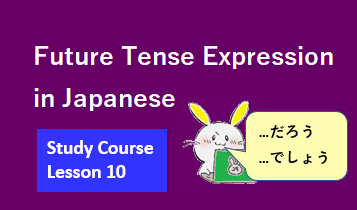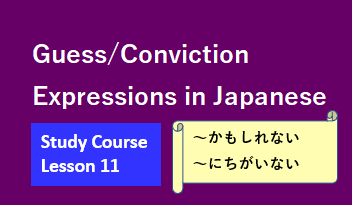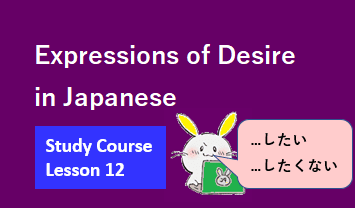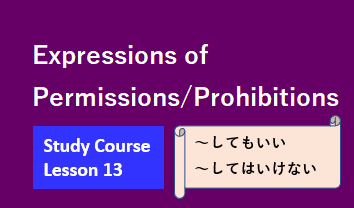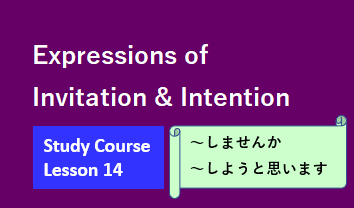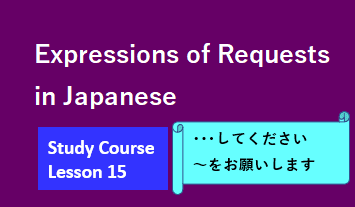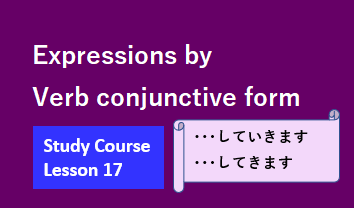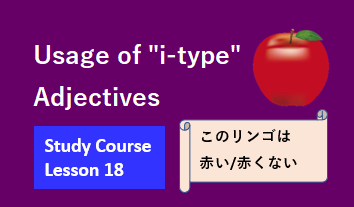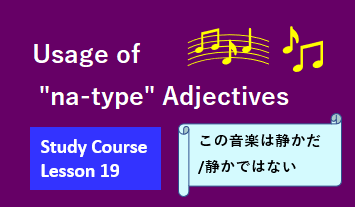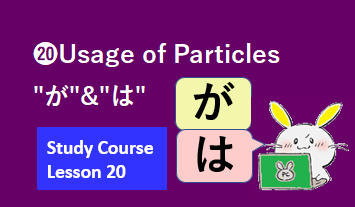Japanese Study Course Lesson16

In lesson 16, we will study the expressions with two objects, such as the sentence pattern "S+V+O+O." For example, if you want to say, "I will give her a birthday present." in Japanese, you would politely say "私は彼女に誕生日のプレゼントをあげようと思います。".
16-1 Receiver + particle "に"
(1)AにBをあげる
Expressions of S+V+O+O ➡ "A( receiver )に+B(something)を+あげる"
- I will give her a birthday present.
- Ordinary:私は彼女に誕生日のプレゼントをあげようと思う。
- Politely:私は彼女に誕生日のプレゼントをあげようと思います。
- Use the particle "に" after the person you give something to, and use the particle "を" after the item you provide. It is important to distinguish between the particle "に" and the particle "を".
- The verb "あげる" can also be called the verb "さしあげる". This verb "さしあげる" emphasizes the directional intention more than the verb "あげる".
- Ordinary:私は彼女に誕生日のプレゼントをさしあげようと思う。
- Politely:私は彼女に誕生日のプレゼントをさしあげようと思います。
- Replacing "思う" with "思います" makes it more polite.
There is no problem in changing the order of "彼女に" and "誕生日のプレゼントを" to say "私は誕生日のプレゼントを彼女にあげようと思う。" or "私は誕生日のプレゼントを彼女にあげようと思います。". However, be careful not to make a mistake in adding the objective particle "に" after a person and the objective particle "を" after a thing.
In this course, we will use word order like ”AにBをあげる” as the basic word order, so if you are in the Japanese beginner class, please memorize the basic style so that you do not make mistakes with the word order rules.
◆Detailed explanation
- Ordinary:私は彼女に誕生日のプレゼントをあげようと思う。
- Politely:私は彼女に誕生日のプレゼントをあげようと思います。
- 私(subject)+は(nominative particle)
- +彼女(object, receiver)+に(objective particle, with directional intent)
- +誕生日のプレゼント(object)+を(objective particle)
- +あげよ(verb "あげる", intentional form)+う(auxiliary verb, intention)
- +と(objective particle, quotation)※We studied how to use the particle "と" in Lesson 12:Expressions of Desire.
- +思う(verb, basic form)/ +思い(verb "思う", consecutive form)+ます(auxiliary verb, polite)。
◆Vocabulary note
| 誕生日 :(noun) birthday プレゼント:(noun) present あげる :(verb) give さしあげる:(verb) give, to emphasizes directional intent |
(2)AにBを・・・してあげる
Expressions of S+V+O+O ➡ "A( receiver )に+B(something)を+あげる/ +・・・し+て+あげる"
- I lent money to my friend.
- Ordinary:私は私の友人にお金を貸してあげた。
- Politely:私は私の友人にお金を貸してあげました。
- Use the particle "に" after the person you give something to, and use the particle "を" after the item you provide. It is important to distinguish between the particle "に" and the particle "を".
- Replacing "あげた" with "あげました" makes it more polite.
◆Detailed explanation
- Ordinary:私は私の友人にお金を貸してあげた。
- Politely:私は私の友人にお金を貸してあげました。
- 私(subject)+は(nominative particle)
- +私の友人(object, receiver)+に(objective particle, with directional intent)
- +お金(object)+を(objective particle)
- +貸し(verb "貸す", conjunctive form)+て(conjunction particle)
- +あげ(verb "あげる", past tense form)+た(auxiliary verb, past tense)/ +あげ(verb "あげる", consecutive form)+まし(auxiliary verb "ます", polite) +た(auxiliary verb, past tense)。
◆Vocabulary note
| 友人:(noun) friend お金:(noun) money 貸す:(verb) lend |
(3)AにBをくれる/・・・してくれる
Expressions of S+V+O+O ➡ "A( receiver )に+B(something)を+くれる/ +・・・してくれる"
- My grandmother bought me a toy.
- Ordinary:祖母は私におもちゃを買ってくれた。
- Politely:祖母は私におもちゃを買ってくれました。
- Use the particle "に" after the person you give something to, and use the particle "を" after the item you provide. It is important to distinguish between the particle "に" and the particle "を".
- Replacing "くれた" with "くれました" makes it more polite.
◆Detailed explanation
- Ordinary:祖母は私におもちゃを買ってくれた。
- Politely:祖母は私におもちゃを買ってくれました。
- 祖母(subject)+は(nominative particle)
- +私(object, receiver)+に(objective particle, with directional intent)
- +おもちゃ(object)+を(objective particle)
- +買っ(verb "買う", conjunctive form)+て(conjunction particle)
- +くれ(verb "くれる", past tense form)+た(auxiliary verb, past tense)/ +くれ(verb "くれる", consecutive form)+まし(auxiliary verb "ます", polite) +た(auxiliary verb, past tense)。
◆Vocabulary note
| 祖母 :(noun) grandmother おもちゃ:(noun) toy 買う :(verb) buy くれる :(verb) give |
(4)AにBを・・・する
Expressions of S+V+O+O ➡ "A( receiver )に+B(something)を+・・・する"
- I teach them English early in the morning every day.
- Ordinary:私は毎日早朝に彼らに英語を教えている。
- Politely:私は毎日早朝に彼らに英語を教えています。
- Use the particle "に" after the person you give something to, and use the particle "を" after the item you provide. It is important to distinguish between the particle "に" and the particle "を".
- The particle "に" in "毎日早朝に'' is used to indicate the timing at which an event occurs.
- Replacing "いる" with "います" makes it more polite.
◆Detailed explanation
- Ordinary:私は毎日早朝に彼らに英語を教えている。
- Politely:私は毎日早朝に彼らに英語を教えています。
- 私(subject)+は(nominative particle)
- +毎日(time)+早朝(time)+に(objective particle, timing)
- +私(object, receiver)+に(objective particle, with directional intent)
- +おもちゃ(object)+を(objective particle)
- +買っ(verb "買う", conjunctive form)+て(conjunction particle)
- +くれ(verb "くれる", past tense form)+た(auxiliary verb, past tense)/ +くれ(verb "くれる", consecutive form)+まし(auxiliary verb "ます", polite) +た(auxiliary verb, past tense)。
◆Advanced Study objective particle "に" ③:timing
- The objective particle of this usage is used to add immediately after a noun indicating the timing at which an event occurs.
- It is used in the form of "noun(time) + に".
- For example, I left Japan on August 1st, stayed in Hawaii for a week, and returned to Japan on August 8th. 8月1日に日本を出発し、1週間ハワイに滞在して、8月8日に帰国しました。
- I teach them English early in the morning every day. 私は毎日早朝に彼らに英語を教えています。

16-2 Giver + particle "に"
(1)AにBを・・・してもらう
Expressions of S+V+O+O ➡ "A( giver )に+B(something)を・・・し+て+もらう"
- Yesterday, I was very tired from work, so I asked my wife to give me a massage.
- Ordinary:昨日、仕事で大変疲れたので、妻にマッサージをしてもらった。
- Politely:昨日、仕事で大変疲れたので、妻にマッサージをしてもらいました。
- Use the particle "に" after the person who provide you something, and use the particle "を" after the item you receive. It is important to distinguish between the particle "に" and the particle "を".
- Replacing "もらった" with "もらいました" makes it more polite.
◆Detailed explanation
- Ordinary:昨日、仕事で大変疲れたので、妻にマッサージをしてもらった。
- Politely:昨日、仕事で大変疲れたので、妻にマッサージをしてもらいました。
- 昨日(time)、+仕事で大変疲れたので(subordinate clause, reason)、
- +(subject omission)
- +妻(object, giver)+に(objective particle, causative/passive)
- +マッサージ(object)+を(objective particle)
- +し(verb "する", conjunctive form)+て(conjunction particle)
- +もらっ(verb "もらう", past tense form)+た(auxiliary verb, past tense)/ +もらい(verb "もらう", consecutive form)+まし(auxiliary verb "ます", past tense form, polite)+た(auxiliary verb, past tense)。
◆Vocabulary note
| 昨日 :(noun) yesterday 仕事 :(noun) work 疲れる :(verb) be tired 妻 :(noun) wife マッサージ:(noun) massage もらう :(verb) get/receive |
◆Advanced Study objective particle "に" ④:causative/passive
- The objective particle of this usage is used to add immediately after a noun indicating the subject of action in sentences with causative verb or passive verb.
- It is used in the form of "noun + に".
- For example, 'My older sister taught me English when I was in kindergarten.' 私は幼稚園のときに姉に英語を教えてもらいました。
- Yesterday, I was very tired from work, so I asked my wife to give me a massage. 昨日、仕事で大変疲れたので、妻にマッサージをしてもらいました。
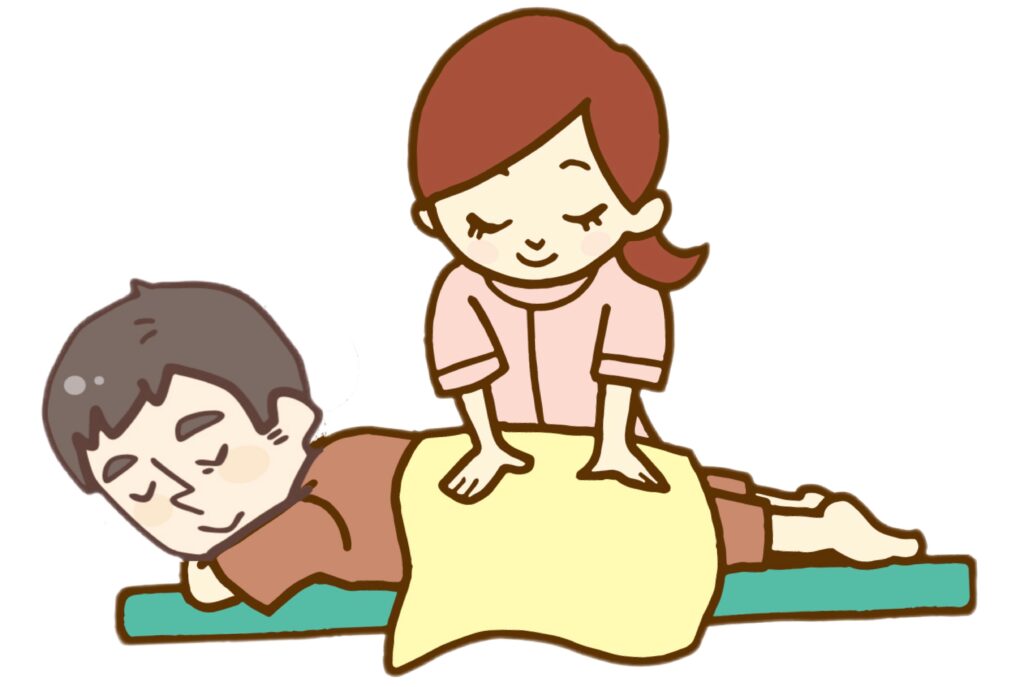
(2)AからBをもらう/・・・してもらう
Expressions of S+V+O+O ➡ "A( giver )から+B(something)をもらう/・・・し+て+もらう"
- When I was in kindergarten, my older sister taught me English.
- Ordinary:私は幼稚園のときに姉から英語を教えてもらった。
- Politely:私は幼稚園のときに姉から英語を教えてもらいました。
- Instead of using the particle "に" after the person who provide you something, the objective particle "から" can be used. Using the particle "から" instead of the particle "に" emphasizes the meaning of "from someone".
- Replacing "もらった" with "もらいました" makes it more polite.
◆Detailed explanation
- Ordinary:私は幼稚園のときに姉から英語を教えてもらった。
- Politely:私は幼稚園のときに姉から英語を教えてもらいました。
- 私(subject)+は(nominative particle)
- 幼稚園のとき(time)+に(objective particle, timing)
- +姉(object, giver)+から(objective particle, causative/passive)
- +英語(object)+を(objective particle)
- +教え(verb "教える", conjunctive form)+て(conjunction particle)
- +もらっ(verb "もらう", past tense form)+た(auxiliary verb, past tense)/ +もらい(verb "もらう", consecutive form)+まし(auxiliary verb "ます", past tense form, polite)+た(auxiliary verb, past tense)。
◆Vocabulary note
| 幼稚園:(noun) kindergarten 姉 :(noun) older sister 英語 :(noun) English 教える:(verb) teach |
◆Advanced Study objective particle "から" ➁:causative/passive
- The objective particle of this usage is used to add immediately after a noun indicating the subject of action in sentences with causative verb or passive verb.
- Using the particle "から" instead of the particle "に" emphasizes the meaning of "from someone".
- It is used in the form of "noun + から".
- For example, 'I was praised by my teacher.' 私は先生からほめられました。
- When I was in kindergarten, my older sister taught me English. 私は幼稚園のときに姉から英語を教えてもらいました。

"私は幼稚園のときに姉から英語を教えてもらいました。" can also say "私は幼稚園のときから姉に英語を教えてもらいました。". In this case, "から" is "➀: origin of range" usage, and "に" is "④: causative/passive" usage. Please review properly!!


Today's lesson ends here. Ladies and gentlemen, did you understand today's theme "Expressions of S+V+O+O"? Next time, we will study "Expressions by verb conjunctive form." See you!
See you next time!

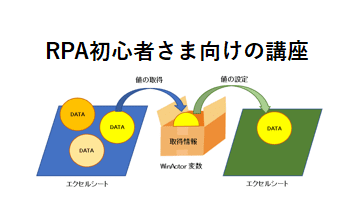
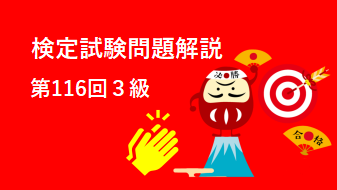
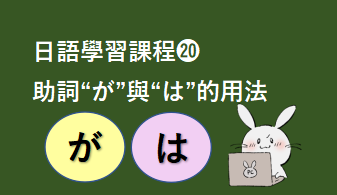

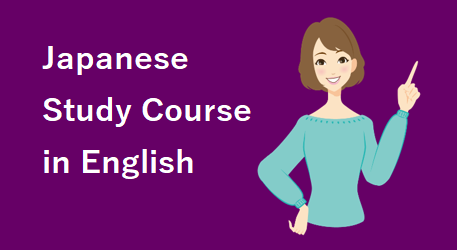
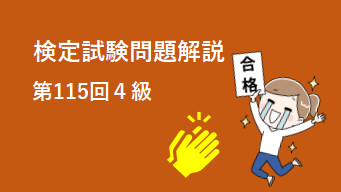
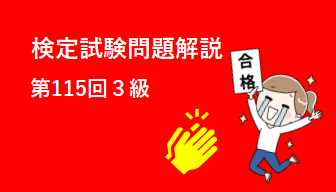

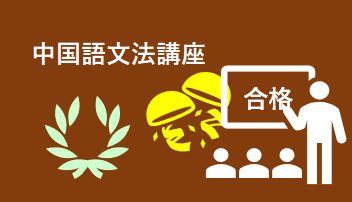
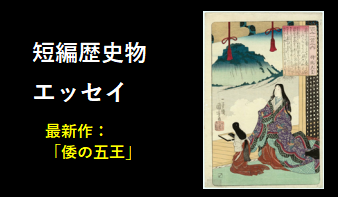
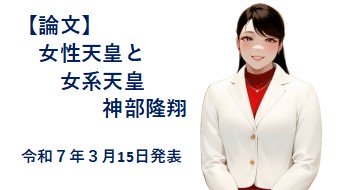
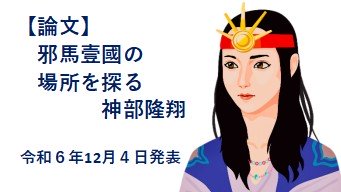
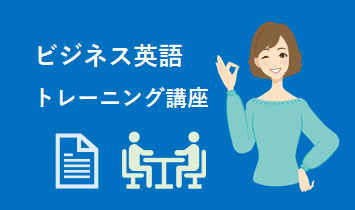

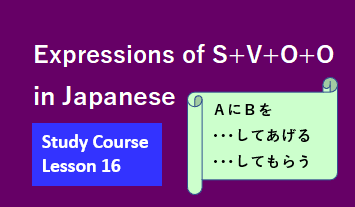


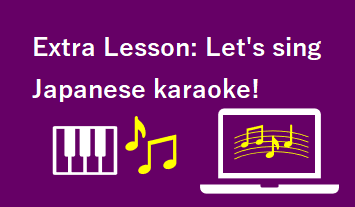
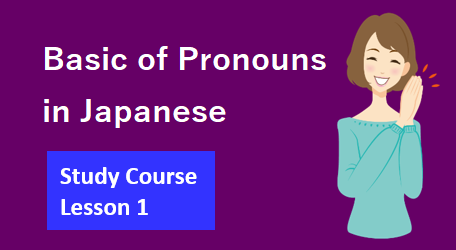
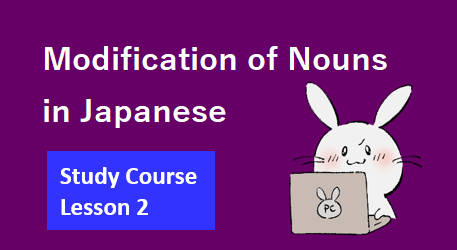

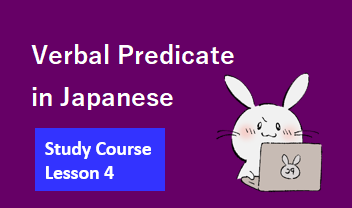
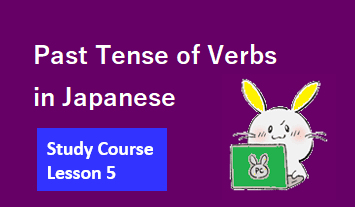
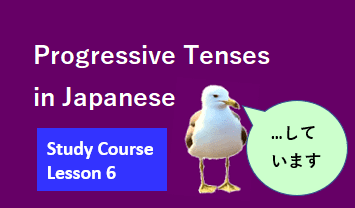
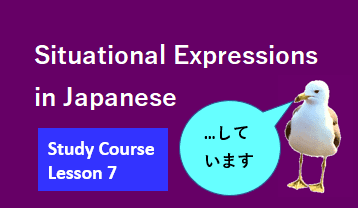
![❽Possible Expressions [1]](https://ryusho-kanbe.com/wp-content/uploads/2023/04/スクリーンショット-2023-04-03-100754.png)
![❾Possible Expressions [2]](https://ryusho-kanbe.com/wp-content/uploads/2023/04/スクリーンショット-2023-04-28-095816.png)
